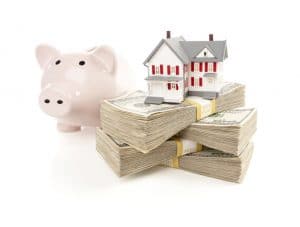
Home equity, what does this term mean? It is the difference between the value for which you could sell your property and what is owed against it. As Canadians’ home values grew and grew in recent years, many people became intoxicated with the idea that they were now paper millionaires. Even as their children complained they would never be able to buy a house, many older Canadians with comfy suburban homes cheered on the the housing boom – and went shopping.
Economists have a term for this behaviour, it’s called the ‘wealth effect’, and it means that when people feel richer, they spend more – even if they don’t necessarily have a cent more to spend than they did before. “If your house is suddenly worth 20% more, even if you don’t have more money, you feel richer,” said an economist at National Bank Financial.
Is this rational?
In many cases, the wealth effect is not rational. An increase in your equity doesn’t actually make you ‘richer’ on a day-to-day basis. The value of your house has doubled, but so has the value of everyone else’s house, so you’re no better off if you sell your home and need to buy a new one. But what really does change is the debt people carry. It’s no coincidence that, as house prices rose faster than incomes over the past 15 years, the amount of household debt in Canada soared to nearly $1.70 per dollar of disposable income, from around $1.10 in the early 2000’s.
What happens when the wealth effect reverses?
The wealth effect has arguably played a role in Canada’s strong economic performance in recent years. Economists noted that since around 2007, Canada has seen the fastest economic growth among G7 countries, a growth that was driven by consumption, which rose along with house prices.
When homeowners start feeling poorer, they will adjust their spending downwards. That will slow the retail sector, putting pressure on many businesses and slowing employment growth. That decline in employment will make it harder for some to pay their mortgages, putting further downward pressure on real estate.
Lending will decline. Fewer people will be taking out HELOC’s on their homes, and the loans they can qualify for will be smaller. That will slow down the financial sector. In all, there will be downward pressure on the economy. In a recent study, Moody’s Analytics tried to put a number to the wealth effect. They came up with 4.5 cents: For every dollar you gain in perceived wealth, you spend an extra 4.5 cents.
So let’s say the average house price here by us drops by $50,000 (leaving it at a still hefty $730,000 for all housing types). If Moody is right, the typical Fraser Valley homeowner will reduce their spending by about $2,250 a year. Multiply that by the hundreds of thousands of homeowner households in the region, and that amounts to a serious economic headwind.
Still some optimism
The economists see something positive on the horizon: booming foreign trade numbers. So trade and business investment might just save Canada’s economy from a consumer-led slump, BUT there is one very notable upshot to the real estate downturn: It will mean improving home affordability, which is at its worst levels in decades. ‘A downward move in price could help some people to get into the market’, was noted. So maybe paper-millionaire boomers will be scaling back their lifestyles soon, but at least their kids might have a shot at getting on the property ladder.
If you are looking to purchase a home in the near future, don’t delay, contact us and we will advice you on the best option available for financing your purchase.
Original article: www.huffingtonpost.ca


